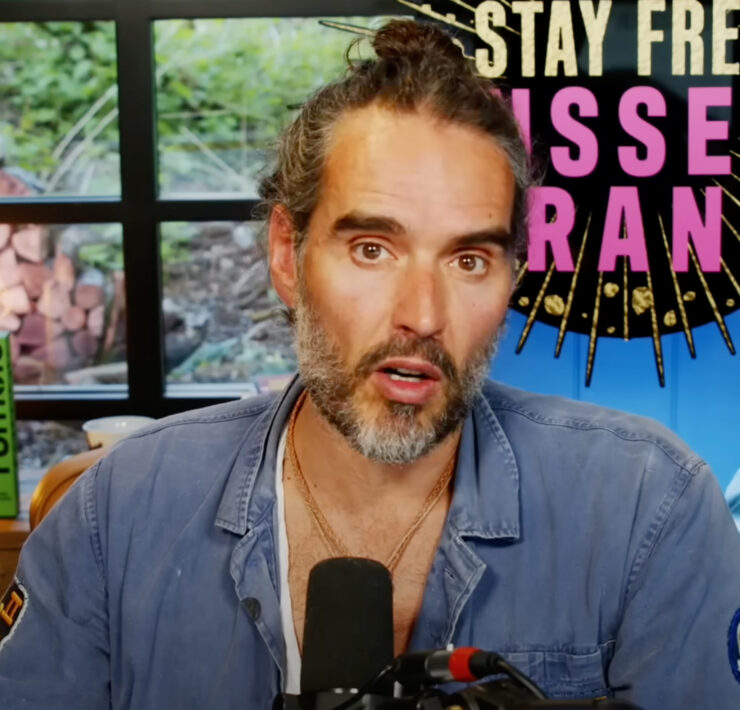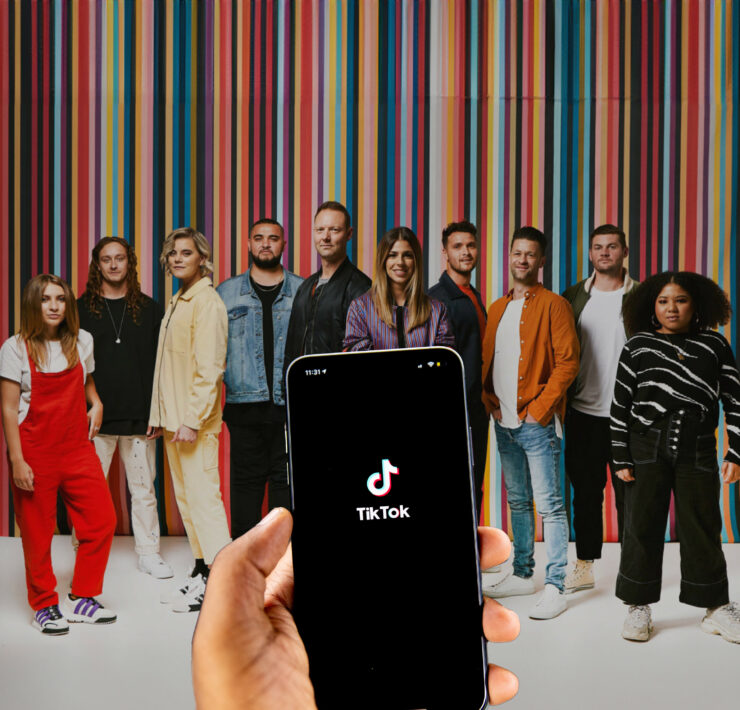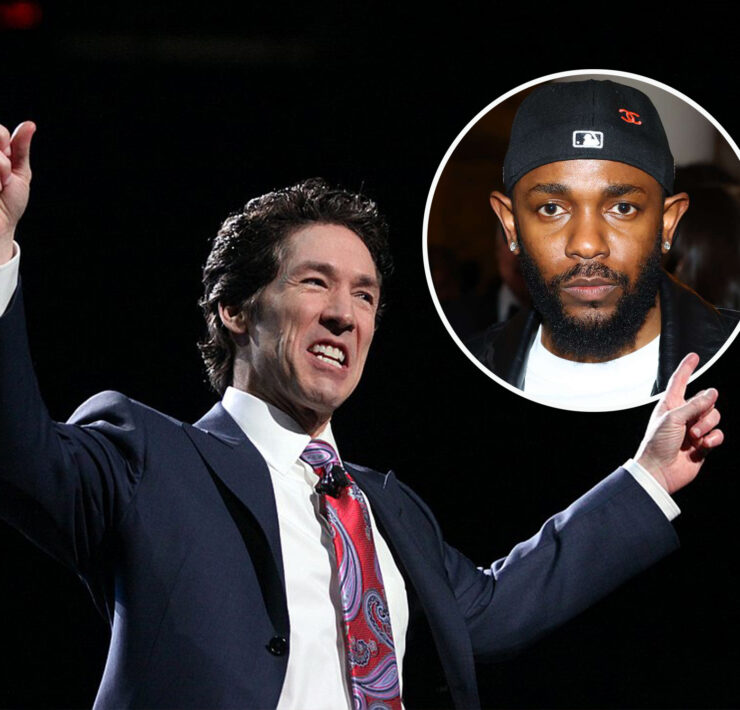
Since the beginning, RELEVANT has believed the future of the Church is bright—that God has a plan and there is always reason to be optimistic. Yes, there is no shortage of areas that Christians can do better in, but by learning from past mistakes, we all can be a part of changing the world for good. We recently spoke with 10 leaders, artists, pastors, activists and theologians about what brought the Church to where we are—and where God is taking us.
What do you see as the most encouraging developments in the Church over the last 20 years?
David Kinnaman: I think the decline of cultural Christianity is an encouraging development. For example, people are much less likely than ever before to simply mark “Christian” in our surveys, and there’s been a corresponding rise in the levels of religiously unaffiliated, or “none.”
Not feeling the pressure to say you’re Christian for mere social desirability is a good thing. Related to that, we’re able to talk much more openly as a society about issues of sex and sexuality. For example, people readily admit in our surveys that they are struggling with porn. For a social researcher, it’s a great time because people like to share their opinions and do so pretty openly. That’s a great opportunity for the Christian community to speak clearly and openly about the issues that matter most to people.
Banning Liebscher: I think it’s easy to forget we are alive in one of the most unprecedented moves of God in history. Africa, not long ago a mostly unreached continent, is now the center and future of Christianity. One out of every four Christians on the planet lives in Africa. China is experiencing a supernatural revival that cannot be stopped. Statistically more believers gather every Sunday in house churches in China than in the United States. Latin America is experiencing dramatic renewal and transformation. These are days to be filled with hope, not discouragement.
Carl Lentz: Influence. The Church as I know it is more likely to influence culture in positive ways. That hasn’t always been the case. But now I see the Church being looked to for answers across the board, and that is important.
Lauren Winner: I think a lot of trends that began 30 or 35 years ago have taken deeper root in the last 20 years—a great engagement with the arts; a great engagement with liturgical prayer and other once-dismissed-as-too-Catholic prayer practices. I think there’s also greater comfort with people publicly naming doubt, questions.
Samuel Rodriguez: A multi-ethnic church-planting movement that’s unprecedented [has] pushed back on the notion of the most segregated hour in America. I do believe the next 15, 20 years, all things being equal, you will be hard-pressed to find monochromatic churches one way or another. Be it white, be it black, be it Latino, whatever it may be, you’re going to see a lot more diversity as it pertains to ethnic makeup in churches across America in the next 20 years.

What are some red flags you wish the Church was paying more attention to?
Jen Hatmaker: I am consistently distressed by the Church’s silence on white supremacy, abuse within its ranks and the dehumanization of immigrants and LGBTQ people. Specifically, I’m concerned that the evil embedded in these systems is not challenged in the average church. These are deemed “political issues” and left out of the Gospel’s reach. Not only are most pulpits and discipleship programs silent on injustice, but vocal advocates are often punished with exclusion or group condemnation. The way I read Scripture, Christians should be on the frontlines of every injustice and human rights abuse in the world.
Ekemini Uwan: White supremacy and the radicalization of young white men in white evangelical churches. There are homegrown white supremacist terrorists sitting in the pews of white evangelical churches, like John T. Earnest, who opened fire at a synagogue in Escondido, California, and killed Lori Gilbert-Kaye and injured others. He also set a neighboring mosque on fire weeks before his act of terror at the synagogue.
White supremacists should never feel comfortable sitting in church with their wicked and sinful ideologies going unchallenged from the pulpit. A narrow and truncated Gospel is producing John Earnests all over the country. He is not an outlier.
David Kinnaman: The lack of mercy within the Church: Most Christians say they struggle to forgive someone in their life, and one in four say they cannot forgive themselves for something they’ve done.
Another challenge is that Christians aren’t always clear about what it takes to be a resilient disciple—that is, how to live as a countercultural, spirit-driven minority within our society.
Samuel Rodriguez: Another red flag is the uber-politicization of the Church. We are more political and less prophetic when we should be a lot more prophetic and a lot less political. By the way, I don’t mean the Church should somehow aqueous and not be engaged as it pertains to their civic responsibility as individuals, my problem is when we walk lock step to the rhythm of a particular ideology.
I do believe that the biggest change you will see in the American Church in the next five years will be the Church becoming an independent voting block, and then arguably the most independent voting block of all. Millennials and Generation Z will not in any way, shape or form bow at the idol of a donkey or the elephant.
Banning Liebscher: One of the red flags I see is a generation of Christians moving away from being rooted in Scripture and in community. I am concerned about the line of thinking that we can deconstruct Jesus from the authority of Scripture and faith from belonging to His people. The end result is an unhealthy believer. There is a radical individualism in secular culture that has allowed Christians to think they can take only the parts of Jesus they like and throw away the rest, not realizing that all they are doing is worshipping themselves and creating a new version of Jesus in their own image. The Church must come back to being a people submitted to Scripture and growing in community. It’s in that place the Church can be everything it is supposed to be and represent Jesus fully.
How is the Church of the next generation going to look different from the one we were brought up in?
Jen Hatmaker: I’m thrilled about the next iteration of the Church. I’m so grateful my kids will be a part of it. I think complicity by silence will be a thing of the past, and I predict great integration between the faith and lived experience of the next generation. They will reimagine a bunch of stuff we built, as new wineskins do, and I hope to hold containers loosely knowing the wine will be preserved. May they not find our generation rigid and brittle; I want to pass the baton with grace. I will be delighted to see cultural Christianity fade, so the numbers may be smaller but the power will be concentrated.
Tedashii: I think the Scriptures are true when they say there’s nothing new under the sun. I was really in my journey fighting some of the same battles that my parents were fighting in a lot of ways.
My nephew is wrestling with the faith. He just graduated high school. He’s fighting for the identity of freedom that’s presented to him by the world and the identity of freedom that’s presented to him by Christ. And one looks very enticing, and it’s the one that all his friends have gravitated toward. It’s the one the TV shows, the songs push on him. And yet he doesn’t find the comfort, the peace, the substance, that he does when he looks at the freedom offered by Christ.
When I started going to church right before I went to college, all I heard about was behavior, behavior, behavior. But in my time being at church, it became a lot more about relationships. So relationship turned into what I knew in intellect, and I see him walking the same journey.
I think there will be a difference in how he’s having to engage these topics, but I don’t see a ton of difference in what he’s going to have to face other than the way it comes at him.
Banning Liebscher: I see the Church of the next generation celebrating each other, rather than competing. We need to be a Church that is less focused on performance and more focused on the power of God to transform lives, empowering people to go make a difference in their city.
I also see a Church where women are finally fully empowered to lead and that racial diversity and unity will be the mark of who we are.
While I know the Church is walking through difficult moments, and I don’t minimize their power or importance, I believe what will come from it is a community of believers who stay faithful to Jesus, who are committed to biblical justice and walk with a supernatural power and love to transform the world. The future of the Church is bright, and as long as Jesus is the head of the Church I have no reason to believe otherwise.
The past 20 years have seen a huge revolution in musical worship. What do you see coming next?
David Kinnaman: A revolution in how Christians live out their faith in the workplace—across a range of industries and professions. Call it work as worship. Those who meaningfully integrate their faith into their work will have a huge impact on the future witness of faith.
Tedashii: What I see happening is subcultures of this idea of “worship music” becoming the niche thing that you see regionally, locally, more so than I do this idea of this giant machine of worship music being the one thing you see happening. I think there’s tons of examples of that.
Even where I live now, people are doing songs by Bethel, but now they’re also doing songs that they’re writing themselves. They have started to kind of put their own regional or local spin on that sound. So if anything, Hillsong, Bethel, big movements like that, they really opened the door for these different churches to try to run their own lane when it comes to music.
It’s like, “Oh, we have musicians, and we have writers, and we have our own talented people. Let’s create something true to where we are.”
“The future of the Church is bright … as long as Jesus is the head of the Church …” –Banning Liebscher
Annie F. Downs: A return to some of the disciplines of Scripture that God laid out for us as tools to use to enhance our faith. I wonder if in the next 20 years we’ll see fasting return to a normal part of the Christian life experience and prayer become a central power tool that we use not just as a talking piece or in an emergency but as a real, strategic tool to help us know what to do next and to search through what God has for us.
Kari Jobe: I think worship music is stepping into a new level of honesty and authenticity. Removing the desire for a polished song and returning to the passion we first encountered when we met Jesus. There’s beauty in looking back to remember the things God has done and remembering the raw moments of love.
Revelation 2 talks about not forsaking our first love. To keep God as our first love and protecting that from being crowded by apathy and religion.

What is an issue you think the Church as generally handled well over the last generation?
Carl Lentz: Putting an emphasis on who Jesus is.
Jen Hatmaker: I’ve been encouraged by the important shift away from “them” and “us.” This has been an enormous departure from my religious childhood. I was taught to fear culture and remain set apart, which translated to judgmentalism and a toxic evangelicalism. The Church today has become a good neighbor.
Some of the invented barriers have disintegrated between people in and out of the Church, and this is great progress. The transformation it affects in the hearts of believers alone is worth the shift.
Kari Jobe: I love how much corporate worship has evolved, and how excellently so many people are being led into the presence of God. There are so many different displays of the beauty of God on the Earth through the various expressions of worship and I believe it’s drawing many people to recognize who Jesus truly is.
Banning Liebscher: One of the greatest things I have seen the Church do in this last generation is genuinely empower everyday people to be missionaries in every sphere of society. It wasn’t long ago that the mindset was only pastors or missionaries could be used by God, but the Church has truly caught a vision to raise up men and women of every age to bring transformation into society. God desires to raise up people in every aspect of culture to bring the power and the presence of God and the last generation has come alive to this vision.
What is an issue you think the Church has handled poorly over the last generation?
Samuel Rodriguez: Immigration without a doubt. In the beginning, it was the Church that was the staunchest opponent and by Church, [I mean] evangelical America was very opposed to any sort of comprehensive immigration approximation. So, I’m glad it’s shifting and maturing, but in the past 20 years, that has been one issue that hasn’t worked well.
One more item would be the Church lacking a meta-narrative of the imago dei, the image of God in every single human being. We become entrenched in political rhetoric rather than prophetic truth and loving in actions. We should have led the way with: “Every single human being is created in the image of God in, and out of, the womb, therefore we should treat each others with mutual respect and love,” and we haven’t. We approach things through a political spectrum rather than a prophetic, loving narrative.
“The Church will rise to the degree it is willing to own its failings and make amends with the communities it has marginalized.”
–Jen Hatmaker
Banning Liebscher: One thing I believe much of the evangelical Church has handled poorly is what it means to be a people of justice and to be a culturally reconciled community.
Historically, instead of facing hard realities around race, privilege and justice, the Church has at best buried its head in the sand and pretended like nothing was wrong, and at worst perpetuated the problem. I think this must change, and I believe we are actively watching it change. The future of the evangelical Church is a racially and culturally reconciled people who walk in a powerful oneness that is only available through Jesus. We cannot repeat the mistakes of the past.
David Kinnaman: Racial reconciliation, for sure, has been a weak spot. How the Church has addressed matters of sex and sexuality is another. We’ve over-simplified things and not seen the many dimensions inherent in these matters. We’ve also “lost” many entrepreneurs, science-minded students and creatives because our theology hasn’t been sturdy enough to cause them to believe Christianity could really matter to them.
Jen Hatmaker: I cosign every word David and Banning said. Additionally, the Church has struggled with corporate repentance for all the mentioned shortcomings and outright failings. We’ve lacked the humility to say, “We were wrong and we caused immense harm.” I sincerely believe this repentance will be the beginning of transformation. It is powerful, as is its omission. The Church will rise to the degree it is willing to own its failings and make amends with the communities it has marginalized.
The most common critique of American Christians is that they’re too judgmental. Why do you think that is, and do you think it’s changing?
Ekemini Uwan: At a fundamental level, I don’t think people have an issue with judgment, per se. After all, saying that Christians are judgmental is a judgment, and all judgment is not inherently bad. I think what people are critiquing is the blatant hypocrisy that is prevalent among American Christians. How can the very people who claim to be pro-life weep for the unborn whom they have not seen and not weep for the immigrant children who are being sexually abused and are dying in detention centers in America? That is the question.
Christians must always remember that our orthodoxy is proven by our orthopraxy. When we fail to marry the two, we become a stumbling block and a veil that dims the beautiful light of the gospel of Jesus Christ. A consistent life ethic from womb to tomb that is rooted in a holistic gospel is the antidote to this egregious hypocrisy.
Carl Lentz: I think it’s a lack of teaching on even what the word “judgmental” means. Often, people who think the Church is judgmental simply don’t like being told “no.” That is a cultural reflection. On top of that, we are called to judge. We are called to speak truth. But explaining what that means is where the problem lies. We can change this perception by teaching people who the Holy Spirit is. He is as much the “convicter” as he is the “comforter.” This perception can shift as people learn that Christianity at its essence includes major conflict.
The word of God is judging our flesh constantly. Beyond that, there are churches that have misused and misapplied this, and hopefully Christians will be smarter and better trained to immediately know the right and the wrong spirit of judgment that can be present in churches.
Kari Jobe: As Christians, we have to examine the imperfections in our own hearts before we look at anyone else. And in order to speak the truth in love to someone, you have to have relationship. It’s impossible to speak that truth over social media when there’s no relational equity. No one likes being shouted at by a stranger. I think the Church is slowly becoming better at accepting every person into its doors. Not just the doors of the building, but the doors of our lives—giving every person from every background an opportunity to meet Jesus.
Annie F. Downs: I think that is believed because the judgmental ones are the loudest ones. I think that often the majority of faith people are less judgmental and less noisy, which is really concerning for me because as a leader, I struggle with how do you say the right thing at the right time but still love first? People want to love well but also want to hold onto truth, and it seems like we are wrestling with what that looks like more today than we did 20 years ago.
How should churches do a better job at preventing abuse at the leadership level?
Ekemini Uwan: Establishing accountability outside of the local church: Church policy matters and because indwelling sin is a reality for all believers, we all need accountability. That includes leaders. From the outset, there needs to be a council that holds the local church and leaders of that local church accountable.
Additionally, there needs to be an outside organization that is independent of the local church and council that can hold them accountable and protect the most vulnerable within the church. These must be organizations that specialize in different types of abuse, be it sexual or spiritual abuse. In this way, those who are vulnerable have an organization outside of the local church to turn to for support and protection.
Annie F. Downs: I think having diverse accountability will increase protection from abuse. Whether it’s more women or other races, or other socioeconomic groups, the way we protect from abuse is diversifying the voices who are holding the abusers accountable.
Every room of old white guys changes when a woman walks in. So, if we can diversify who is holding the person accountable I think it will decrease abuse and create a culture where secrets aren’t welcome. Where you don’t get an extra thumbs up when you keep a secret, but secret behavior and secret sin is cut off at the root long before it turns into abuse.
Carl Lentz: As long as humans are called by God to lead churches, there will be abuse of power, abuse of people, abuse of everything at the highest level. The question is, “What will we do about it when it happens?” What will we put in place to shine as much light as possible on leadership in the hopes of saving a lot of people, leaders and followers alike, from things that can be easily avoided with accountability, awareness and protocol that makes it very hard to continue with abusive leadership as opposed to what it has been?
Evangelism is on the decline. What are some ways churches can better equip Christians to share their faith?
Lauren Winner: Pastors need to devote attention to evangelizing the pews: doing basic catechetical—scriptural— theological work among people in church. Helping God usher people into church is only one part of robust evangelism. If the church isn’t catechizing people once they’ve gotten engaged in Christian community, we aren’t really evangelizing.
Ekemini Uwan: Our evangelism must not only be concerned with the human soul, exclusively, it must also address the body. The Church must address the former without continuing to neglect the latter. That requires a holistic gospel that says, “I see your need for salvation and shelter. I see your need for redemption and reparations. I see your need for holiness and healthcare.”

The time is now for the Church to heed the wisdom of the Apostle James and the brother of our Lord Jesus Christ, “If a brother or sister is poorly clothed and lacking in daily food, and one of you says to them, ‘Go in peace, be warmed and filled,’ without giving the things needed for the body, what good is that? So also faith by itself, if it does not have works, is dead.” James 2:15-17
Banning Liebscher: This is a question most church leaders are asking right now. It is critical we address the issue of meeting the felt needs of those in our communities. We must look at the impact an authentic life has on evangelism and how people long for authenticity and friendship.
But I would also add the need for prayer and power in evangelism. You cannot disconnect the role the power of God played in evangelism in the New Testament and a community of believers who prayed.
Jen Hatmaker: I have such religious baggage around this question, I find it difficult to answer. I’m not interested in evangelicalism void of justice and tainted with colonialism. There has been such an impurity in so many evangelical tactics. I struggle to separate its future from its past. I don’t believe in a formulaic, transactional evangelicalism. I want people to know Jesus in His fullness. He has managed to become known and cherished in every generation with or without our techniques. I hope we consider why evangelicalism has so greatly declined as a guide moving forward.
Multi-site churches and video satellite campuses have become popular. How do you see these types of churches evolving in the coming years?
Carl Lentz: It’s a double-edged sword. Of course, it’s practical and reasonable to reach culture where it is, but “how much” is the question. Uber Eats is a brilliant business idea. People don’t want to leave their house to eat. But does that mean sitting around a table at a restaurant for three hours has lost its value? In that same way, what some people say is “antiquated,” to me, is essential. On the other hand, is it really? That is going to be one of the defining factors for where the local church as we know it is headed.
David Kinnaman: I think multi-site and video campuses have a lot of positives. But I do wonder how much we’ll see a backlash against “big box” Christianity. More than ever, we’re hearing from millennials and Gen Zers who seem to be building antibodies to the professionalization of Christian worship services. This isn’t just a question for multi-site or video churches. The metrics for discipleship, especially now in digital Babylon, have to be the faithfulness and resilience of individual believers in those communities. Are we being equipped to live a different kind of life throughout all of life?
Annie F. Downs: Multi-site campuses with video feeds is a structure that has worked for our culture currently, but as our culture continues to shift, and as what people long for is more face-to-face connection and less connection with their technology, there’s going to be an increased need for local, smaller-sized leadership even if the sermon is streamed from a different location.
Tedashii: I am a firm believer that if a multi-site campus church does not find a way to evolve, that it could potentially become stagnant. If we can try to look beyond ourselves, we’ll start to recognize most of these satellite campuses have their own identity, their own DNA, and aside from having to report to a board, having to report to some leader, they’re doing their own thing in their own area.
That idea of them growing into becoming their own autonomous place of worship has been one of the healthiest ways I’ve seen it and considered it because you can really, really shepherd the flock well without having to create this idea that your identity is wrapped up in the motherboard down the road.
It’s becoming less sending more gathering. Less equipping more entertaining. And I’m wanting to hope, in some regard, we are optimistically saying, “What’s the next step so we continue the work of equipping and encouraging and sending people out so we can further the Gospel?”






















